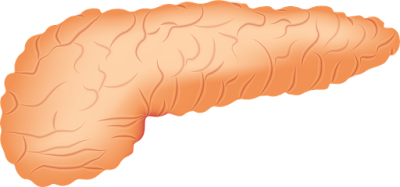Kefir diet weight loss - how to lose weight by drinking kefir?
Kefir diet and weight loss
One of the most famous ways of cleansing the body is the kefir diet. She won many fans thanks to her effectiveness. However, in order to achieve the desired results, it must be applied properly and all indications must be observed.So it is designed for people with strong will and determination.
Rules of kefir diet
The entire diet is based on kefir. Throughout the whole period of its application we drink large amounts of it, but in a dose that will satisfy our hunger. Therefore, in this case, thinking "the less, the better" is wrong. We are slowly reducing the amount of meals we eat, pushing out the kefir.At first, it is a good way to eat lean curd on one day, and then drink only kefir for 2 days. Then gradually introduce cooked or raw vegetables into the diet and then boiled meat on the last day.
It is worth noting that the size of meals should be reduced and then gently increased.
The second way is a bit different, but equally effective. Other dishes are served every day, but the base is of course kefir. So on day I we can eat potatoes with kefir, in day II boiled chicken with kefir and then vegetables or fruits with kefir.
This method can be used for 5 days, bearing in mind that on the fourth day only kefir is consumed, and on the last day only mineral water is consumed. It is intended to cleanse the body.
How often can kefir diet be used?
This diet should not be used more frequently than every two months, as its effects may be unfavourable. Continuous drinking of the kefir alone is also forbidden, as it results in the destruction and reduction of immunity. In addition, it is very important to add new products to the menu to prevent the jojo effect.To ensure that this feeding plan does not become too monotonous, kefir can replace buttermilk or milk drink. Cooked milk or natural yoghurt is a great alternative to kefir. They all have a beneficial effect on the functioning of our body.
Kefir protects against mutations in DNA
Bacteria living in fermented milk products protect against defective changes in DNA and against the development of cancers of the digestive system .
Researchers around the world are looking for so-called antimutagens - compounds that would effectively protect against changes (mutations) in DNA. The formation of mutations promotes the development of many dangerous diseases, such as cancer. It also accelerates the ageing process.
Results to date indicate that, in the human and animal body, most substances with antimutagenic activity are located in organs and fluids associated with reproductive processes. Reproduction is an extremely important process in the life cycle of living organisms, crucial for the survival of the species, so the risk of passing on DNA changes to offspring should be minimal.
Antimutagens are found in seeds and spores of plants and in the ova and sperm of animals, among others. Studies have also shown that some bacteria produce them.
Researchers from the University of Moscow and the Russian Academy of Sciences have become interested in the possibility of using bacterial antimutagens in medicine.
They succeeded in observing that mutation-promoting compounds in fermented milk lose their dangerous properties thanks to bacteria - lactic acid bacilli - which are involved in the formation of fermented (sour) milk products such as kefir and yoghurt.
They neutralise mutagens in various ways. Among other things, they produce enzymes and organic acids - lactic, acetic and butyric - that inhibit the activity of these 'dangerous' compounds to DNA. Some bacteria can also form chemical bonds with mutagens themselves, and sometimes act as antioxidants and neutralise free radicals, some of the best-known mutagenic agents.
Based on their own results and observations, the Russian researchers, conclude that lactic acid bacilli neutralise mutagens in the human digestive tract. So do other bacteria - the so-called bifidobacteria, which are part of the intestinal bacterial flora, where, among other things, they destroy pathogenic bacteria.
According to studies on rats, bifidobacteria and lactic acid bacteria can protect against the development of cancerous processes. This is also supported by medical observations - people who drink a lot of fermented dairy products are less likely to develop intestinal cancer.
As another group of bacteria that can neutralise mutagens in the human body, the scientists also mention propionibacteria, which inhabit dairy products and cheeses, some of which also live on the skin. These bacteria are involved in the production of vitamin B12.
As the researchers point out, the antimutagenic properties of the bacteria are universal. Thus, the bacteria can be used to produce new drugs or dietary supplements, rich in compounds that neutralise mutagens and carcinogens.



Comments
Post a Comment